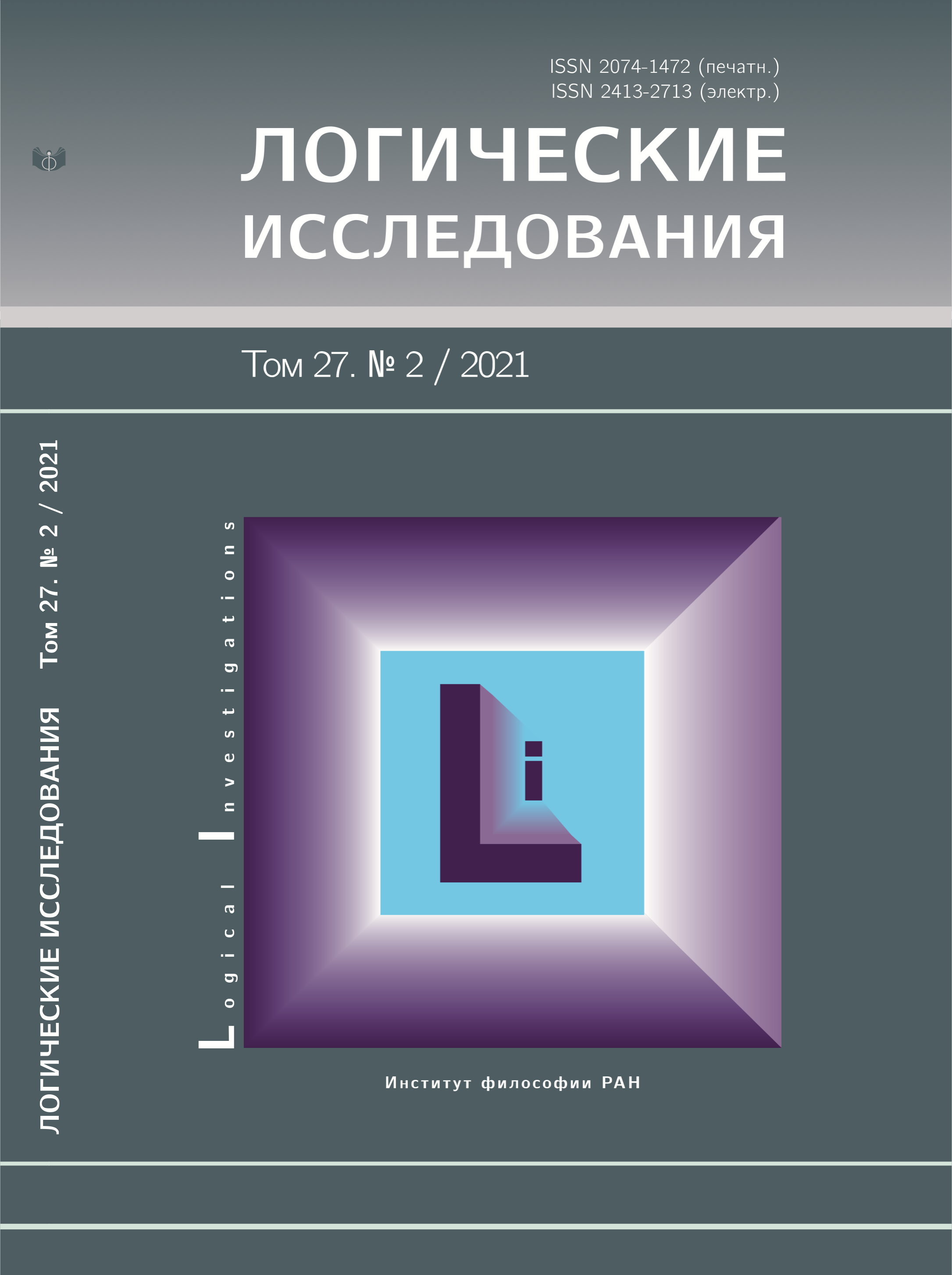Logic in the Process Ontology
##plugins.themes.bootstrap3.article.main##
Abstract
The aim of the work is to study the language tools that can be used for reasoning about procedural ontology. The procedural ontology differs from the substantive one by the greater structuring of the elementary "bricks" from which it is built. The consequence of this is the need to use languages with richer expressive capabilities to describe it. The paper deals with languages with unary and binary modalities. Individual processes can be analyzed from two points of view-statics and dynamics. In the first case, we are interested in statements whose truth depends only on the internal structure of the current process. The ratio of the division of processes allows us to determine on its parts a transitive, dense linear order without the first and last elements, which can be understood as the local time order of this process. This, in turn, allows us to talk about the beginning of processes, their flow and end. It becomes possible to define the concepts of process state and process as events. The inclusion of a binary modality such as a noncommutative conjunction in the language allows us to define an analog of a causal-like conditional relationship between parts of the process. The dynamics of processes implies their continuation beyond the current process. This can occur either due to implicit causal relationships, when the current process contains the reason for its future continuation, or as a result of the actions of active agents who themselves form this continuation. To represent the dynamics of processes as a consequence of the actions of active agents, a simplified version of the dynamic logic language is used. We also showed how you can take into account the goals that active agents set for themselves when performing certain actions.
##plugins.generic.usageStats.downloads##
##plugins.themes.bootstrap3.article.details##
Copyright (c) 2021 Владимир Иванович Шалак

This work is licensed under a Creative Commons Attribution-NonCommercial 4.0 International License.
References
Шалак, 2020 – Шалак В.И. Сравнительный анализ процессуальной и субстанциальной онтологий // Логические исследования / Logical Investigations. 2020. T. 26. № 2. С. 58–86. DOI: 10.21146/2074-1472-2020-26-2-58-86
Allen, 1984 –Allen J.F. Towards a General Theory of Action and Time // Artificial Intelligence. 1984. V. 23. pp. 123-154.
Allen, Ferguson, 1994 – Allen J.F., Ferguson G. Actions and Events in Interval Temporal Logic // Journal of Logic and Computation. 1994. V. 4. Issue 5. pp. 531–579. DOI: 10.1093/logcom/4.5.531
Venema, 1991 – Venema Y. A Modal Logic for Chopping Intervals // Journal of Logic and Computation. 1991. V. 1. Issue 4. pp. 453–476. DOI: 10.1093/logcom/1.4.453
Wright, 1965 – Wright G. H. von And next // Acta philosophica Fennica. 1965. № 18. pp. 293-304.
